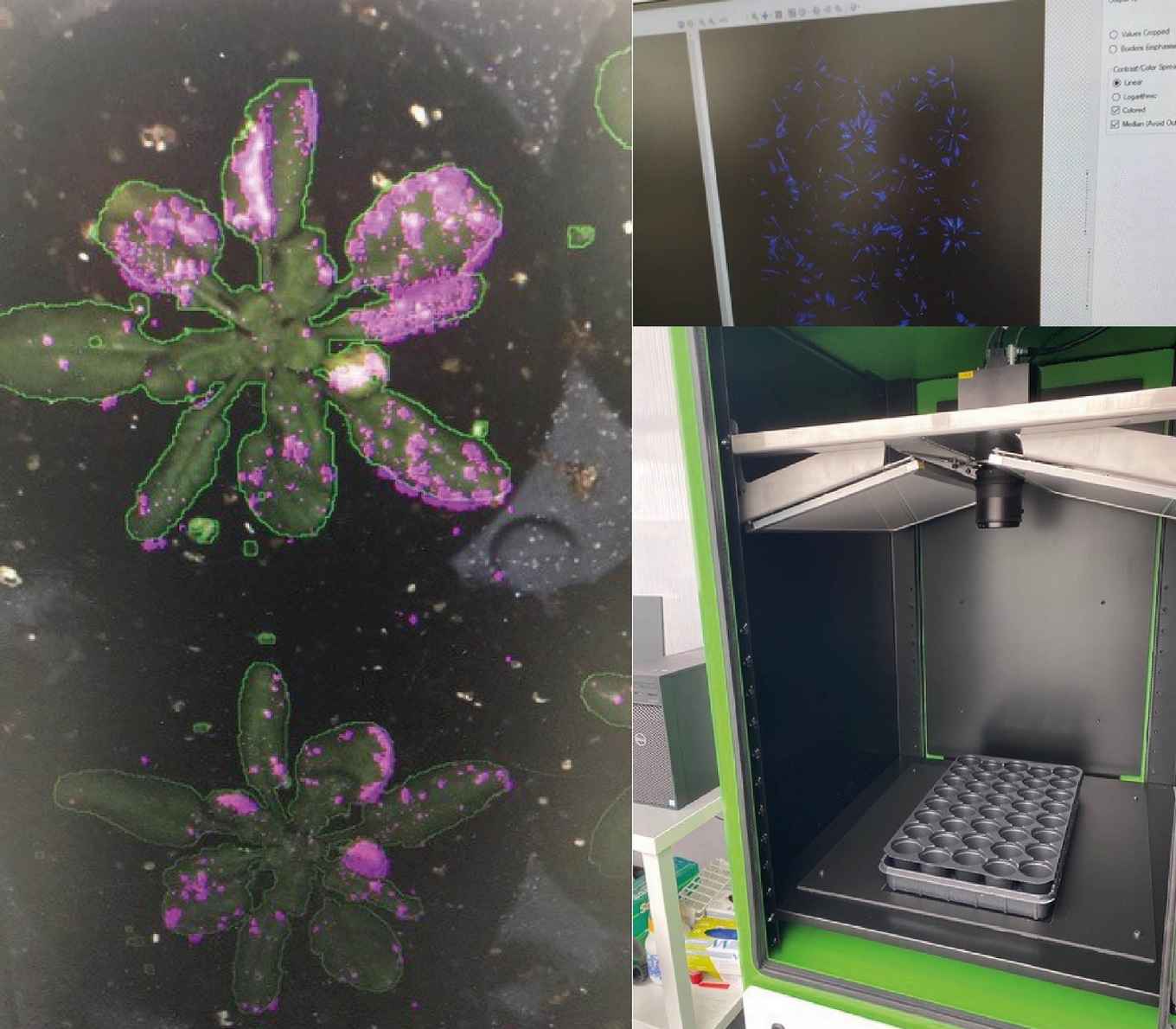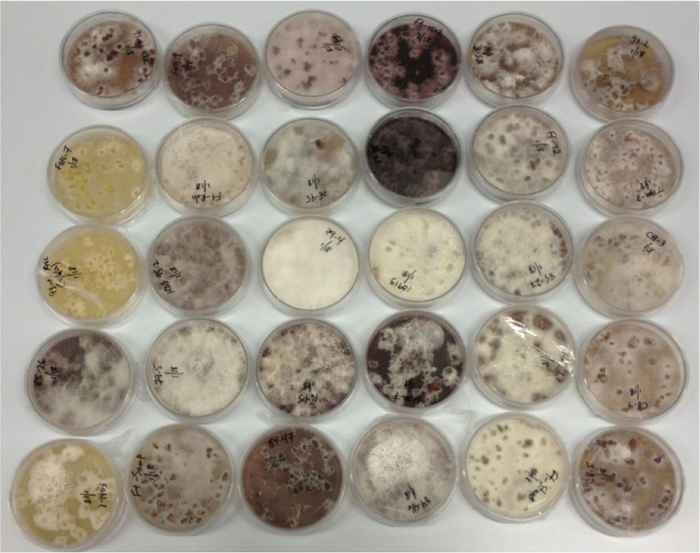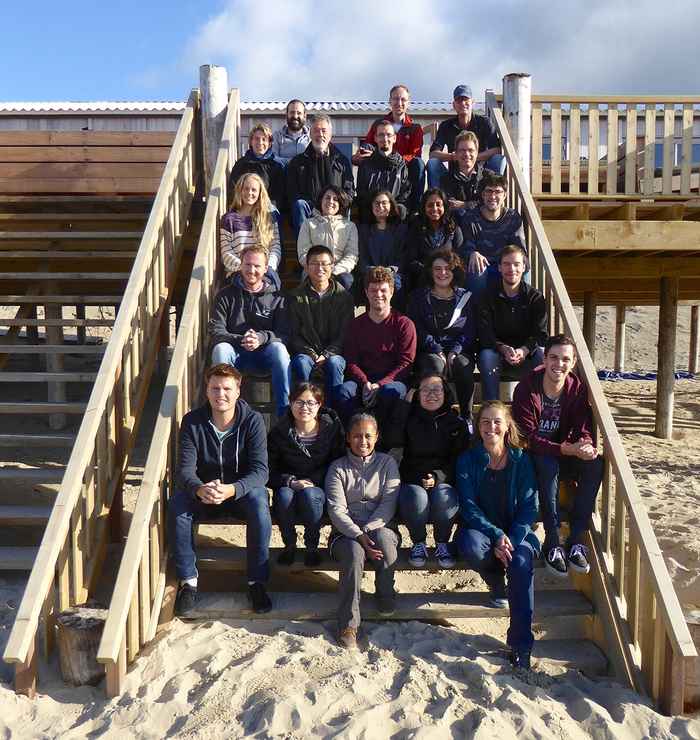About us
Our mission
Our mission – and passion – is to unravel the molecular processes underlying plant immunity as well as plant susceptibility to infectious diseases. Our ambition is to publish on a regular basis in high impact Scientific journals, while fostering the careers of our co-workers. We are dedicated to raising new generations of scientists, and to provide a meaningful contribution towards sustainable agriculture having less impact on our environment.
Our research vision
Since the 1990’s, it has become clear that plants possess a sophisticated immune system that restricts colonization by most microbes and viruses. Hence, the ability of a pathogen to colonize a plant - and cause disease symptoms - requires evasion or suppression of the host’s immune system. To fulfill our research mission, we therefore need to advance the frontiers of knowledge on the molecular determinants of plant immunity and microbial/viral pathogenicity. We study these aspects by using state-of-the-art molecular techniques in high-tech labs and in modern greenhouses. This research enables us to develop and explore novel concepts on plant-microbe interactions and permits implementation and creative use of novel technologies in the fields of -omics, microscopy, (digital) phenotyping and genetic alteration of plants and pathogens.

Our context
We are embedded in the research theme Green Life Sciences (GLS) within the Swammerdam Institute for Life Sciences (SILS) at the Faculty of Science of the University of Amsterdam. SILS provides an excellent research environment including advanced microscopy, sophisticated mass spectrometry and next generation sequencing facilities. We are a member of the PhD graduate school Experimental Plant Sciences (EPS) – a collaboration within the Dutch academic community studying fundamental aspects of plants, including development and interactions with the environment. In several of our projects we have close collaborations with Dutch biotech companies and leading plant breeding companies that operate globally.
Our history
Our group was founded in 1992 by Prof. Ben Cornelissen. He thereby continued over a century of plant pathology research in the Netherlands, pioneered by Jan Ritzema Bos and Johanna Westerdijk. Ben and his team built the foundation of our ongoing research in vascular wilt diseases, such as Dutch Elm disease (for an overview of that work, check this article) and Fusarium wilt on tomato caused by Fusarium oxysporum f.sp. lycopersici. On this strong base, a variety of research lines was developed: Frank Takken and co-workers explore the molecular mechanisms underlying disease -resistance, including endophyte-mediated resistance, and -susceptibility to various pathogens; Martijn Rep and co-workers explore the molecular basis and evolution of pathogenicity of Fusarium oxysporum towards a variety of important crop species; Harrold van den Burg and co-workers explore the molecular basis of virulence of Xanthomonas campestris on cabbage and Arabidopsis thaliana and study plant resistance against this bacterium, as well as to Geminiviruses and Tospoviruses that cause disease in many plant species including pepper and tomato.

Our education
We teach classes in plant pathology, microbiology, molecular biology, cell biology, biochemistry, and associated laboratory skills to bachelor students. We also participate in the MSc track Green Life Sciences, a research oriented programme that focuses on studying plants and their interactions with the environment at the molecular level. This study programme offers the opportunity to combine fundamental and applied training in phytopathology, plant biotechnology, current plant breeding, plant physiology & development, chemical ecology, ecogenomics, pest control, cell and population biology – enabling the development of an integrated view of the functioning of plants and to gain skills required for modern plant research. Amsterdam is a vibrant city in the heart of the Dutch plant biotechnology industry with great opportunities for internships.
Our core values
We are aware that doing research and education requires a community and therefore community values. These include mutual support, celebrating each other’s accomplishments, a learning attitude, and a collective dedication to the building of capacities and the well-being of all group members.
